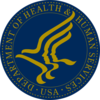Federal Register
Posted: August 6, 2019
The Indian Health Service (IHS) Office of Public Health Support, Division of Epidemiology and Disease Prevention (DEDP), in partnership with the IHS Office of Clinical and Preventive Services (OCPS) National Human Immunodeficiency Virus (HIV) & Viral Hepatitis C (HCV) Program and the U.S. Department of Health and Human Services (HHS) Minority HIV/AIDS Fund (MHAF) is accepting applications for competitive supplemental funds to enhance activities in the Epidemiology Program for American Indian/Alaska Native (AI/AN) Tribes and Urban Indian communities. This program is funded by the Office of the Assistant Secretary for Health, HHS, is authorized under the statutory earmark for minority AIDS prevention and treatment activities, and is to be carried out pursuant to Title III of the Public Service Act. The funding is being made available through an intra-Departmental Delegation of Authority (IDDA) to award specific funding for fiscal year (FY) 2019.
The Tribal Epidemiology Center (TEC) program was authorized by Congress in 1996 as a way to provide public health support to multiple Tribes and Urban Indian communities in each of the IHS Areas. Only current TEC grantees are eligible to apply for the competing supplemental funding under this announcement and must demonstrate that they have complied with previous terms and conditions of the TEC program.
The Office of Infectious Disease and HIV/AIDS Policy (OIDP) is located within the Office of the Assistant Secretary for Health HHS. The OIDP has directed the IHS to make awards to conduct projects and activities in support of the Ending the HIV Epidemic: A Plan for America initiative (EHE). The purpose of MHAF is to reduce new HIV infections, improve HIV-related health outcomes, and to reduce HIV-related health disparities for racial and ethnic minority communities by supporting innovation, collaboration, and the integration of best practices, effective strategies, and promising emerging models in the response to HIV among minority communities.
Current data on the burden of HIV in the United States (U.S.) tells us where HIV transmission occurs more frequently than other jurisdictions. In 2016 and 2017, more than 50% of new HIV diagnoses occurred in 48 counties and the jurisdictions of Washington, District of Columbia (DC) and San Juan, Puerto Rico. In addition, seven states have a substantial rural burden reflecting more than 75 cases and 10% or more of their diagnoses in rural areas.
Our national investments in HIV for nearly four decades have shown remarkable results in preventing new infections, improving health outcomes, and reducing deaths in hundreds of thousands of Americans. Despite this, progress has plateaued and additional effort is needed to ensure that all affected groups derive benefit equally. Some groups, like American Indian/Alaska Native, African American and Latino gay and bisexual men, transgender individuals, or people living in the South, have a higher burden of HIV and experience health disparities at each stage of the HIV care continuum. Southern states today account for an estimated 44% of all people living with an HIV diagnosis in the U.S.,[1] despite having only about one-third (37%) of the overall U.S. population.[2] Diagnosis rates for people in the South are higher than for Americans overall. Eight of the 10 states and all 10 metropolitan statistical areas with the highest rates of new HIV diagnoses are in the South. In addition to the severe burden in the South, nationally there is a high incidence of HIV among transgender individuals, high-risk heterosexuals, and persons who inject drugs.
More Notices
Notice of Cancellation of Environmental Impact Statement for Proposed Coquille Indian Tribe Fee-To-Trust and Gaming Facility Project, City of Medford, Jackson County, Oregon
Energy and Mineral Development Program (EMDP); Solicitation of Proposals
Public Water System Supervision Program Revisions for the Navajo Nation
Notice of Public Meeting of the Alaska Advisory Committee
Migratory Bird Hunting; Migratory Bird Hunting Regulations on Certain Federal Indian Reservations and Ceded Lands for the 2020-21 Season
Solicitation of Nominations for Membership To Serve on Tribal Advisory Council
Final Waivers and Extensions of the Project Periods for the American Indian Vocational Rehabilitation Services Training and Technical Assistance Center
Agenda and Notice of Public Meeting of the South Dakota Advisory Committee
Complete Archive
Energy and Mineral Development Program (EMDP); Solicitation of Proposals
Public Water System Supervision Program Revisions for the Navajo Nation
Notice of Public Meeting of the Alaska Advisory Committee
Migratory Bird Hunting; Migratory Bird Hunting Regulations on Certain Federal Indian Reservations and Ceded Lands for the 2020-21 Season
Solicitation of Nominations for Membership To Serve on Tribal Advisory Council
Final Waivers and Extensions of the Project Periods for the American Indian Vocational Rehabilitation Services Training and Technical Assistance Center
Agenda and Notice of Public Meeting of the South Dakota Advisory Committee
Complete Archive

